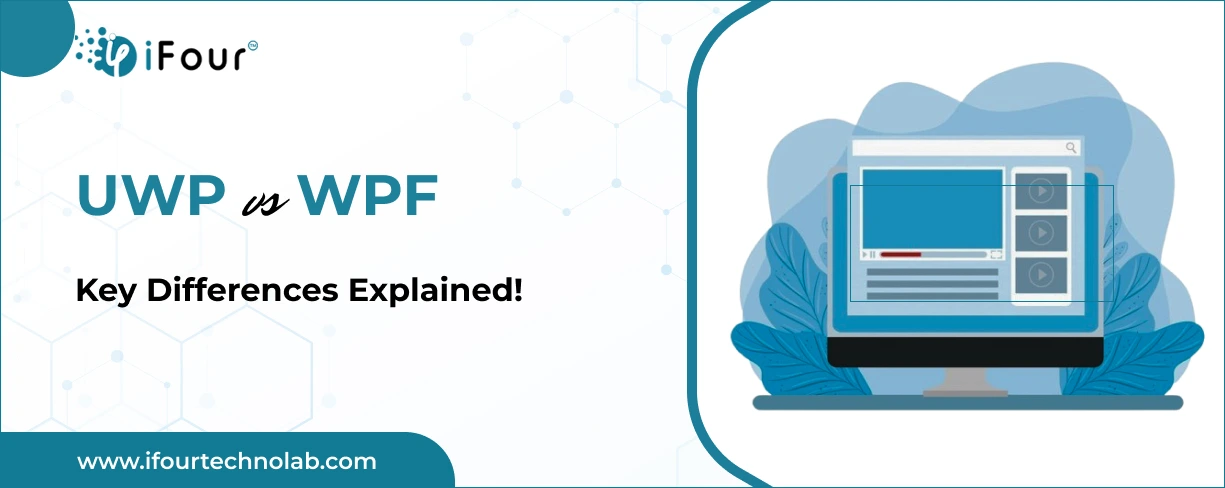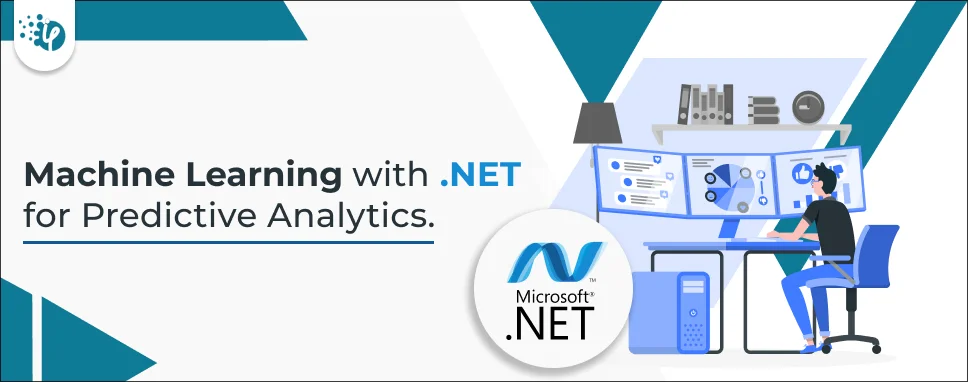What’s New in ASP.NET Core 10 – Key Features & Expert Insights
We tracked the evolution of .NET 9 on Reddit, and watched the heated debates on .NET 6 vs .NET 8. And just when we thought that things had finally settled, Microsoft drops another...
Listening is fun too.
Straighten your back and cherish with coffee - PLAY !

Automation is non-negotiable today. You cannot expect your team to do boring tasks such as data entries, email attachments, sending reminders, and more.
And when it comes to automating business processes and tasks, you need Microsoft Power Automate since it is one of the leading workflow automation tools. You do not necessarily need to have the Microsoft ecosystem to use it.
Since we lead the healthcare, legal and fintech industries for process automation, let us share some practical uses of Power Automate in these industries specifically.
Medical consultants often deal with recursive tasks. Therefore, finding the right solution for this problem is essential. Adopting Power Automate in the healthcare industry helps medical consultants get rid of manual tasks and concentrate on core activities effectively. Here are some Healthcare Power Automate use cases.
Managing medical records is crucial because, without proper data allocation, healthcare providers cannot perform their duties toward patient care properly. However, dealing with a large amount of healthcare records can cause headaches for professionals. One solution is that workers can integrate Power Automate with their Electronic Health Record (EHR) system. Power Automation proffers streamlined integration for automating recurring data entry tasks and sends notifications when there will be a new patient record. This way, professionals can be assured they have proper patient information on hand which helps with informed decision making.
Highlights of this EHR solution
Power Automate integration with the EHR system benefited the company in getting rid of manual hurdles while getting centralized data sources.
Through Power Automate, medical personnel can automate appointment booking or scheduling. Moreover, they can even set particular reminders for patient appointments through SMS, emails, push notifications, or other mediums. This way, medical professionals can simplify appointment scheduling and optimize bookings which helps to reduce cancellation rates.
Microsoft Flow undergoes frequent updates and improvements, allowing medical personnel to stay up to date with market trends and technological advancements. By leveraging regular tech updates, professionals can optimize their operations by considering the growing requirements.
Using Power Automate in Healthcare, organizations can connect different processes which enables sharing of data across team members. With improved collaboration and communication, medical teams can get visibility into which tasks should be done. This can prevent errors and doubling of the same tasks, resulting in improved workflow.
Ensuring compliance with healthcare standards is a most crucial aspect. Power Automate aids in designing workflows that comply with specific healthcare regulations like HIPAA. Power Automate helps with access control and encryption of data. Moreover, this automation tool also adheres to security standards, which ensures the security of sensitive patient data.
Apart from this, there are multiple Power Automate examples available that streamline everyday tasks and enable professionals to improve their work efficiency without getting bored. Moreover, clients can even opt for healthcare software development when they aim to design software tailored to their precise requirements.
Let’s get to know what is the legal prospect of automation. After the healthcare sector, we have noticed a rapid usage of power automation in the legal sector. Law firms can create numerous solutions to optimize their legal operations. Power Automate can revolutionize the way legal team deals with their everyday tasks and execute operations. Using this robust RPA tool, legal teams maximize their work efficiency, mitigate risks concerned with manual entries, and focus on valuable tasks that drive success within the organization. Let’s have an insight into the legal industry Power Automate examples.
Legal professionals can automate the procedure of document review by sending notifications or alerts to relevant parties when a document is ready for review. Power Automate can handle the workflow to track modifications, gather feedback, merge comments, and more. Power Automate enables professionals can organize and manage legal documents quickly and securely. Here automated workflow works to create metadata, update documents, and ensure version control so individuals can work on the latest versions and edits.
Power Automate helps to set up reminders for multiple scenarios like court dates, hearings, deadlines, client meetings, etc. Power Automate allows notifying relevant team members so they can be assured that any important legal task or procedures are not missed and fulfilled on time.
Non-disclosure agreements are prime components of legal workflow. However, proceeding with NDA can take up a lot of time and effort for law professionals. Power Automate helps to automate the workflow of NDA creating and deploying. Eventually resulting in streamlined external and internal approvals to execute non-disclosure agreements quickly and easily.
Conflict checks in law firms can be time-consuming as it require going through data sources and focused reading. However, Power Automate helps with conflict checks and performs detailed analysis of client cases utilizing name checks, subject checks, case comparison, and other components. Microsoft Flow standardizes the process to ensure all necessary clauses are present in the data sheets and allows professionals to save time instead of doing manual checks. This way, law workers can focus on providing high-touch client service to retain clients.
Handling tasks can be time-consuming for an organization especially when there is a huge strength of workers in the firm. Using Power Automate, individuals can assign tasks among team members based on predefined criteria. Moreover, Microsoft’s power automation tool also sends reminders and enables management to track task progression.
Hence, we can say Power Automate applications in the legal industry can do wonders by creating customized workflows.
People often wonder what is the use of Power Automate in finance? We have seen Power Automate in the healthcare and legal industry but how exactly it can be beneficial for fintech personnel? Well, the answer is simple, there are myriad rigid tasks associated with financial working, such as cash management.
So, when such rigid tasks like cash management will be simplified, fintech professionals will be able to make an informed decision by considering up-to-date information provided by the RPA tool.
Fintech automation with Power Automate remain beneficial for organizations to improve operational efficiency, reduce costs and risks related to manual workflow, and ultimately help to achieve rapid processing times.
Cash management remains a critical aspect of fintech workflow, where professionals have to measure and monitor a lot of segments to keep track of cash flow. With the RPA tool of Microsoft, fintech professionals can robotise the tasks related to cash management be it monitoring cash balances, accommodating bank accounts, cash flow report generation, and much more. Fintech Power Automate workflows proffers cash management accuracy and helps finance workers to make informed decisions.
Invoice generation remains one of the time-consuming tasks in the finance sector. However, when your goal is to generate error-free invoices without spending hours and hours on it, workflow automation is your way to go. This way accounting teams don’t have to enter data manually from invoices into their software, instead RPA tool will extract data from invoices.
Finance organizations often have to generate reports related to accounting data, industry position, growth, compliance acts, etc regularly. Automation of report generation remains a popular Power Automate example. By implementing the RPA tool, the report generation can be executed quickly saving a lot of time and effort of fintech personnel. This way, fintech individuals don’t have to go through manual search and data analysis to generate relevant reports.
Hiring new candidates into the organizations remains a tedious task for the recruiting department. However, when you opt for RPA tools like Power Automate, you can automate this manual process of onboarding new employees. This involves sending welcome emails, updating databases, hiring announcements, and to-do list completions. This can mitigate risk and errors and save time for professionals to hire new candidates.
As a Fintech professional, you have to work on securing client’s financial data and implement a robust protection shield. Their sensitive data cannot be disclosed to third parties. Power Automate consulting services could assist you in implementing compliance, access controls, data backups, audit trail management, end-to-end encryption, and more.
With the help of Power Automate, you can meet regulatory requirements and be assured that data is fully secured and compliant, mitigating security risks and data breaches.
Microsoft Power Automate has the vast potential to ease the workload in the healthcare, legal, and fintech industries. You can also find Power Automate examples across industries like education, retail, hospitability, and many more sectors that leverage RPA tools to eliminate manual tasks and optimize business processes.
In this blog, we have explored the top 15 Power Automate examples, but the possibilities are limitless. We hope you find this post helpful, try out automation technology and take control of numerous processes within your business.
Power Automate is a cloud-based service designed by Microsoft and helps businesses build task and process automation across apps and services.
Power Automate is a low-code RPA tool that helps you automate your routine tasks and processes. It comprises some great capabilities like drag-and-drop features and AI, empowering organizations to streamline processes.
There are multiple Power Automate workflow examples are available such as staff onboarding, report generation, accounting workflow, data insights, task management, sending frequent emails, automating approval processes, and many more.
RPA has multiple use cases in the healthcare sector, such as appointment scheduling, billing processes, data analytics, patient treatment, and more.
RPA can be used in the legal sector for a variety of cases such as compliance checks, report generation, filing reports, case reviewing, database searches, and much more.

We tracked the evolution of .NET 9 on Reddit, and watched the heated debates on .NET 6 vs .NET 8. And just when we thought that things had finally settled, Microsoft drops another...

Several experts, particularly those just starting out, often find themselves confused about WPF and UWP, wondering if they are the same. Since they are used to create great UIs for...

Many companies rely on advanced technologies to make informed decisions in their business. For instance, some Chief Technology Officers (CTOs) turn to Power BI consulting services,...